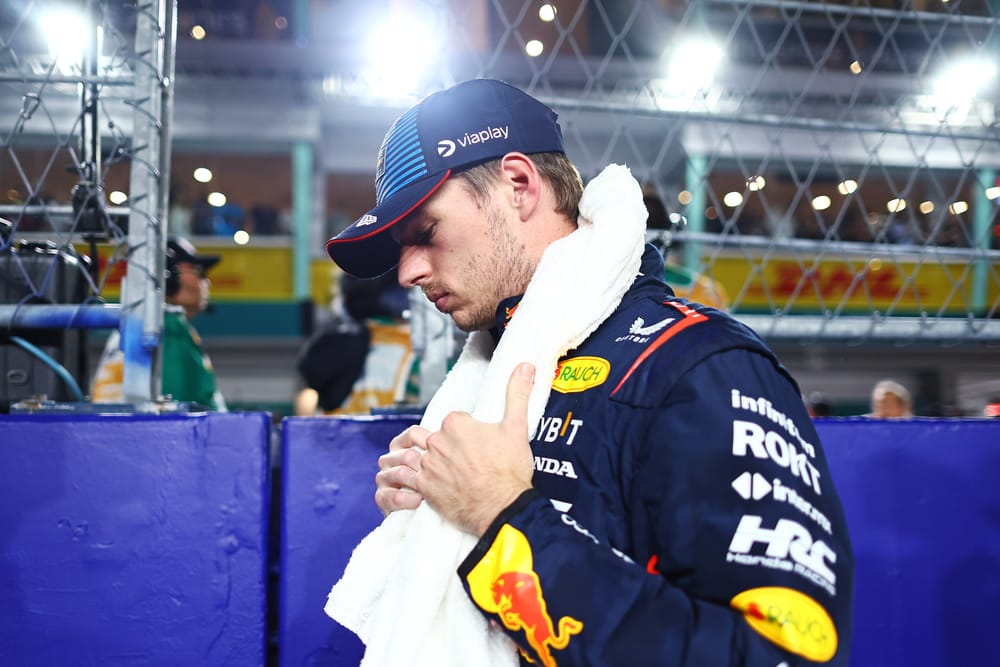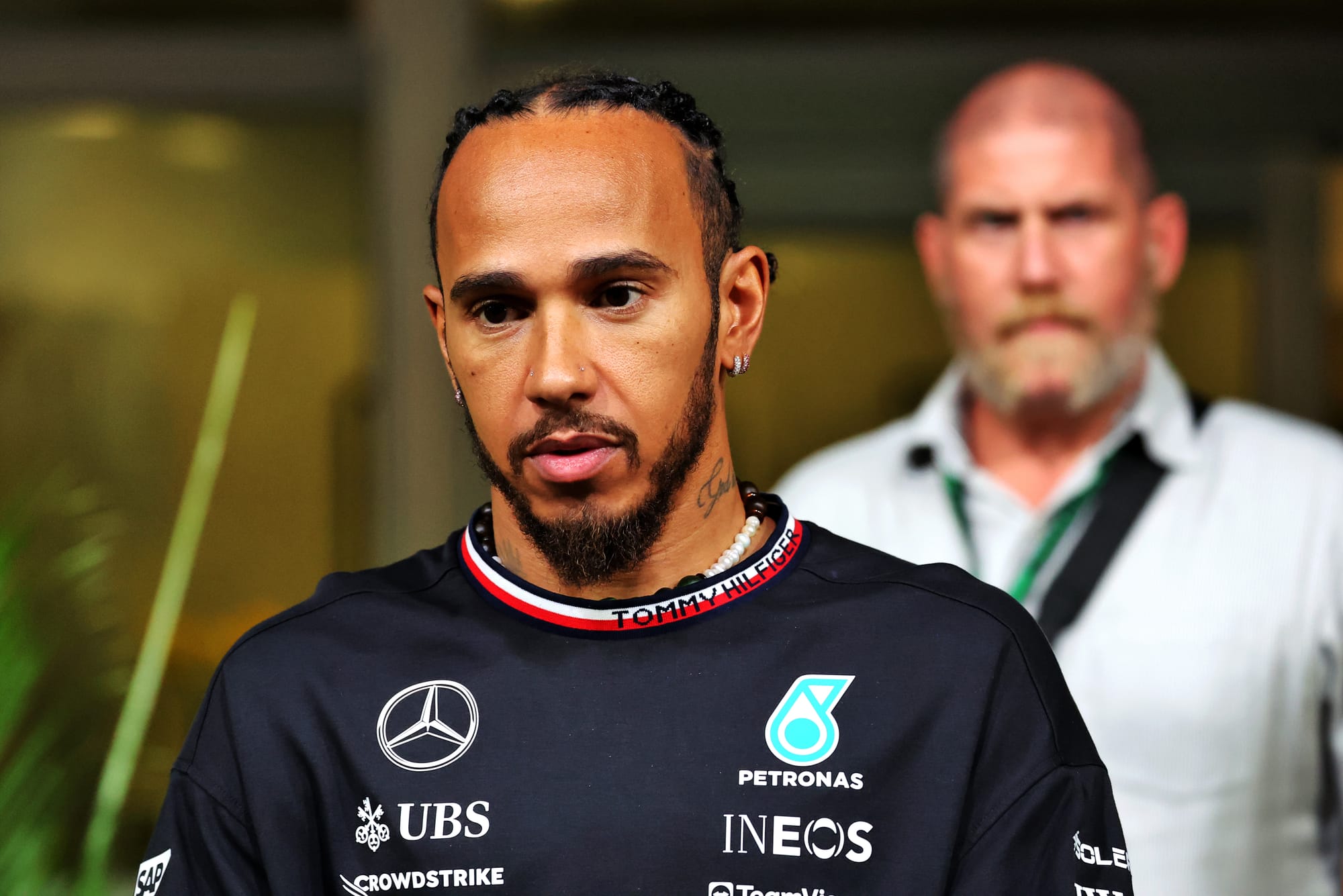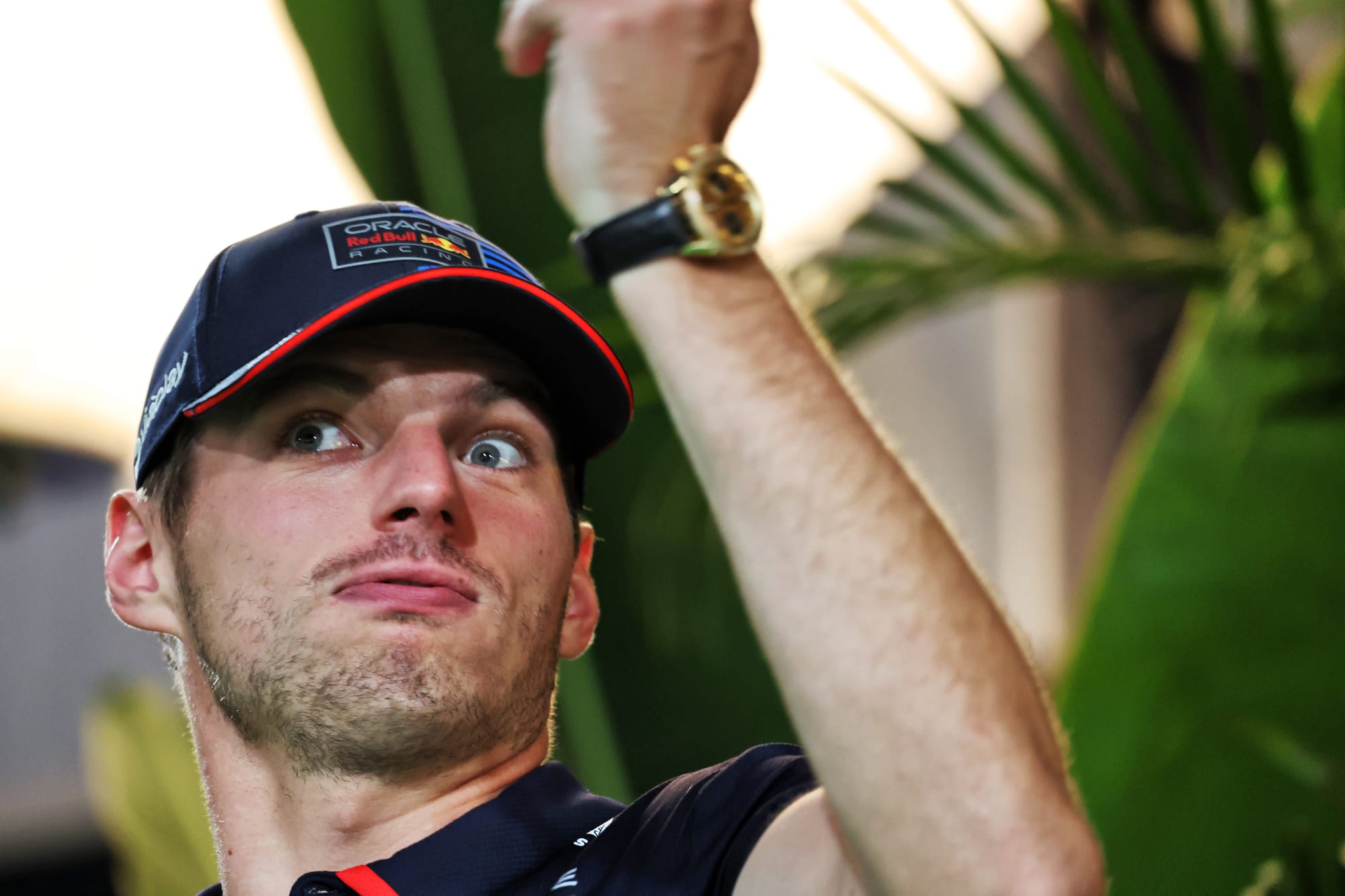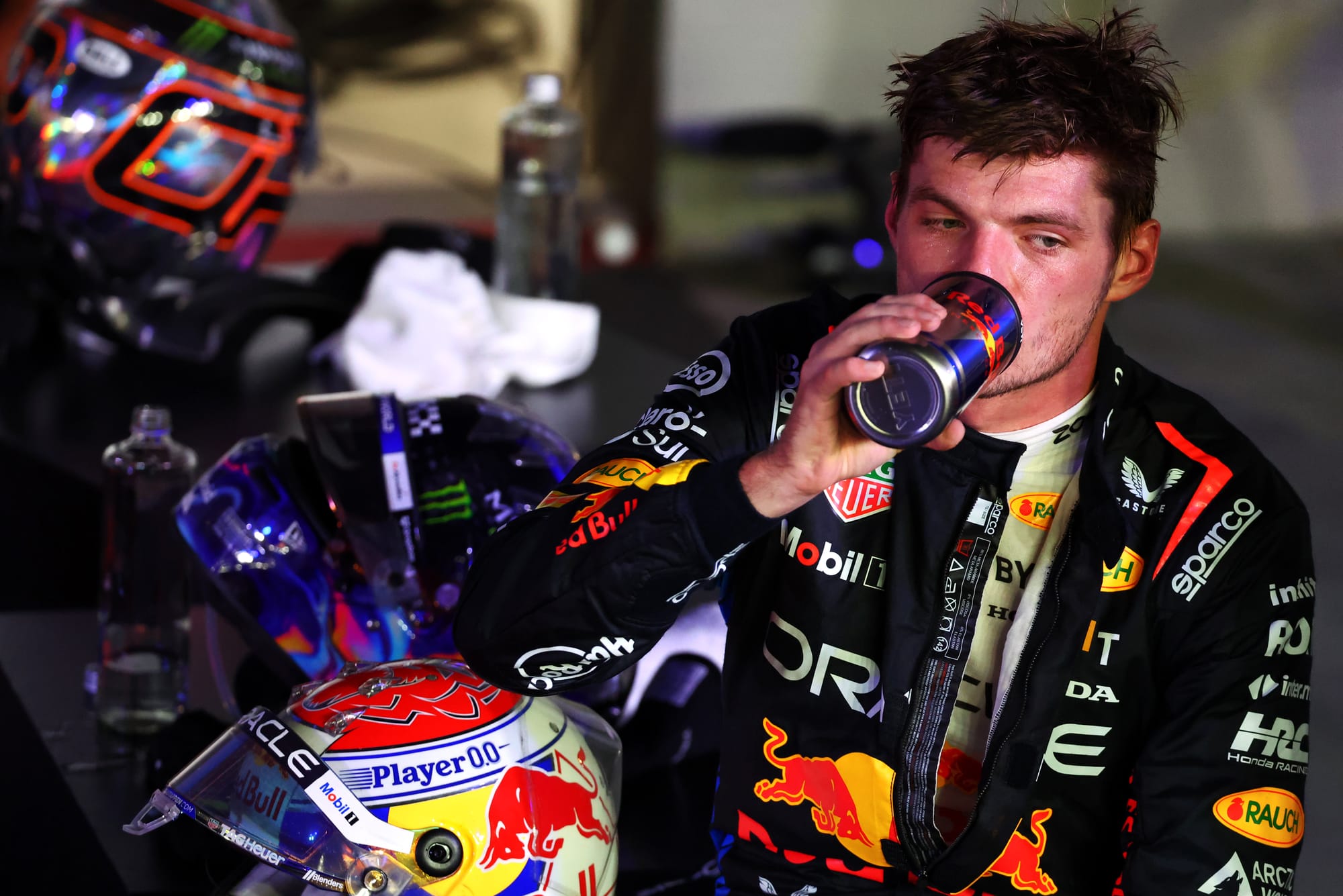Up Next

The idea of the FIA fighting with the reigning Formula 1 world champion might not be a new phenomenon, but the latest Max Verstappen-FIA row might be the most absurd between governing body and title holder yet.
The FIA slapped Verstappen with its equivalent of community service for swearing in the pre-event FIA press conference at the Singapore Grand Prix, leading to Verstappen doing the bare minimum in the post-qualifying and post-race conferences in protest.
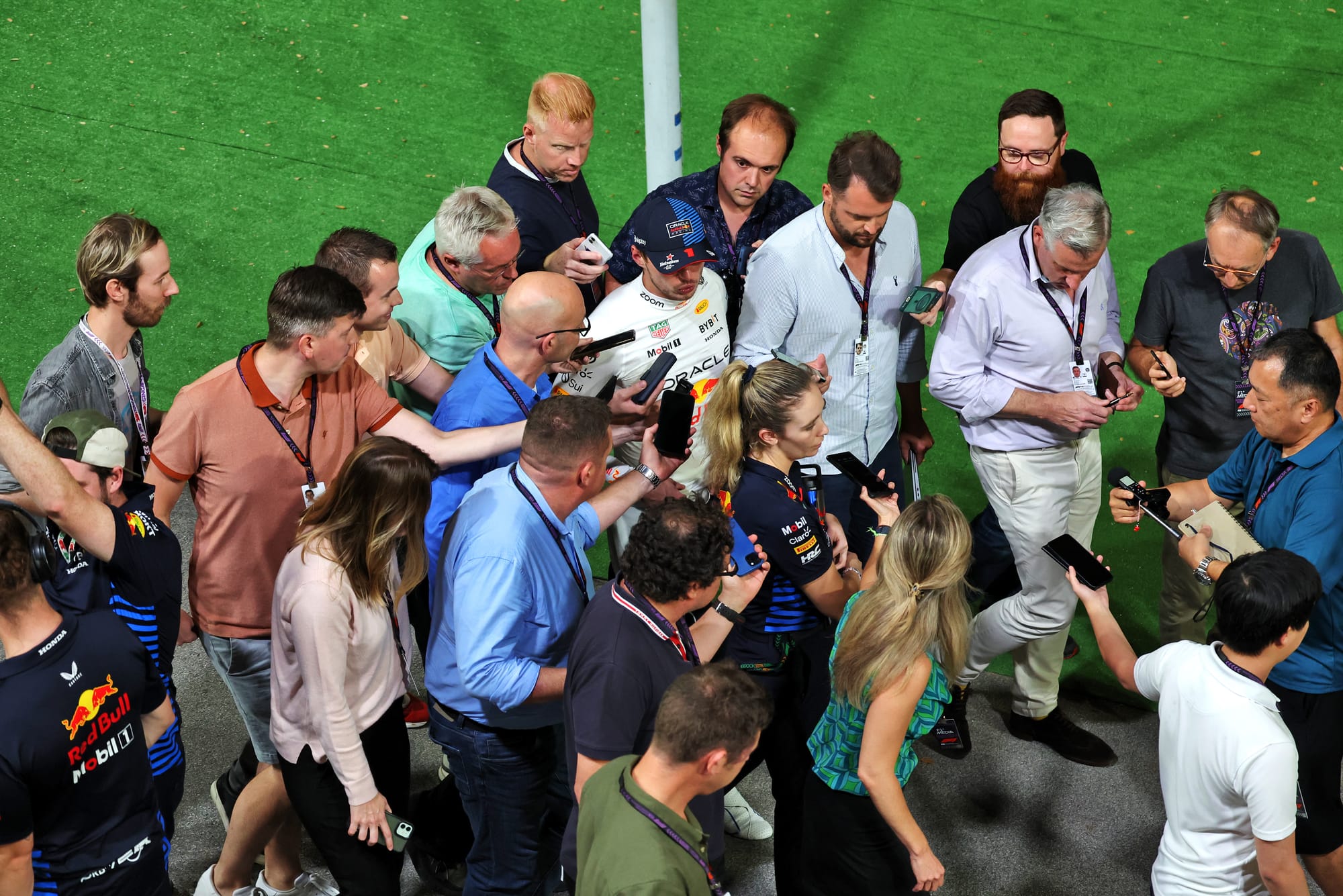
He held impromptu private media sessions instead, making it clear that the target of his protest was solely the FIA and its president Mohammed Ben Sulayem's swearing clampdown that had created so many headlines prior to the weekend.
So has the FIA needlessly created this messy situation? Is Verstappen right to protest? And how seriously should we take the doubts over his F1 future he's resurfaced in response to this action?
Edd Straw, Scott Mitchell-Malm and Glenn Freeman gathered on a recent YouTube video for The Race to discuss all of those questions and more.
There was widespread agreement among the trio that the FIA and Ben Sulaymen have handled this whole clampdown poorly.
"I don't mind the FIA having a position of, 'Please don't swear in all our press conferences'," Freeman explained.
"But I think the way you handle it is you have a word with people and say, 'Look, when you're in this environment, that's our environment, please can you just watch your language'. Talk to these people like adults and they will act like adults in response.
"I don't understand the first way of dealing with this being so heavy-handed and trying to make an example of somebody."
A fight the FIA can't win?
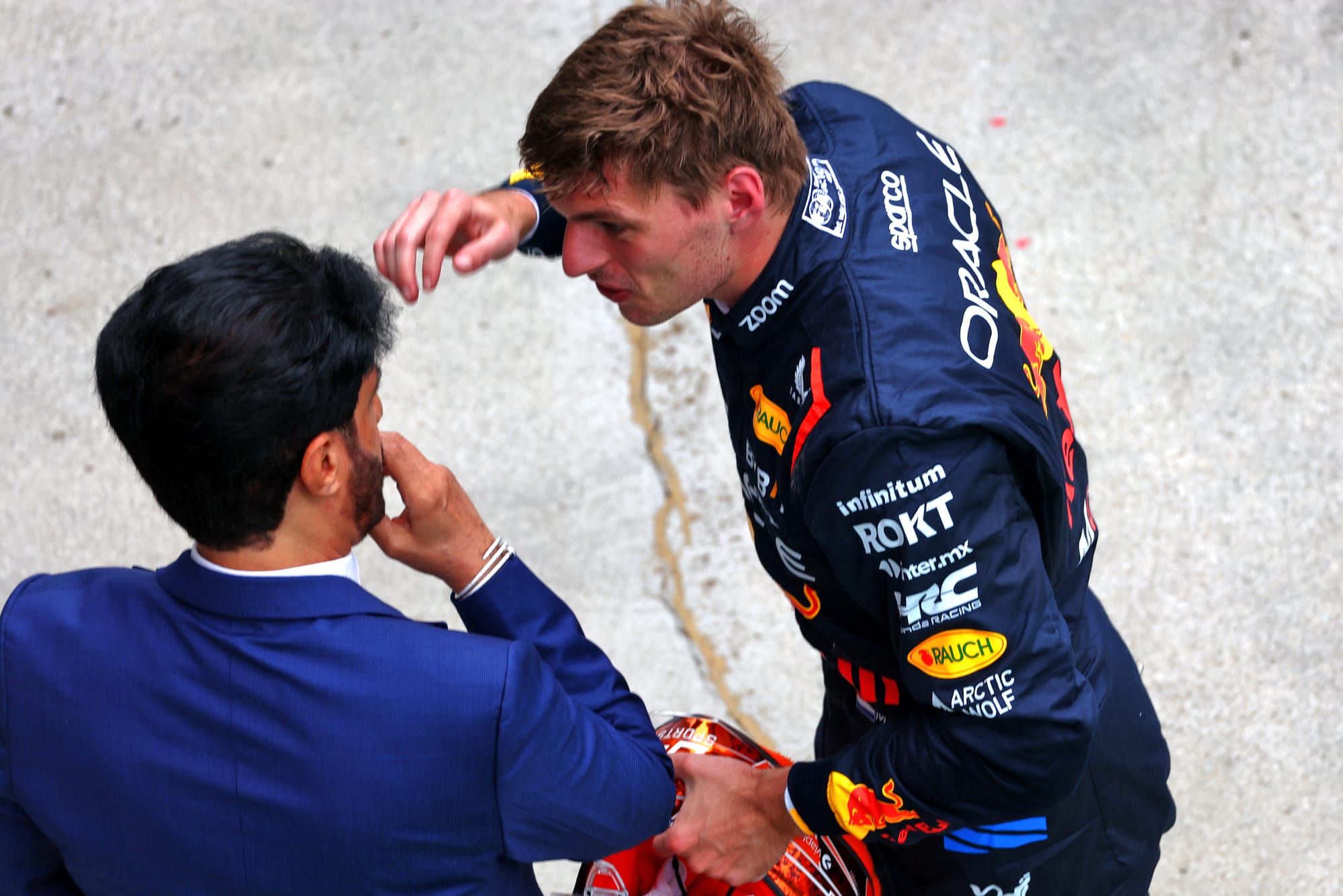
So if it's been badly mishandled thus far, are the FIA and Ben Sulayem waging a war against Verstappen and swearing that can't be won?
"He [Ben Sulayem] can win it by constantly throwing misconduct charges or getting the stewards to constantly do him for misconduct, but I wouldn't say that's a real win, certainly not in the court of public opinion," Straw responded.
"The problem here is that by [the FIA] taking that action, in retaliation Verstappen's passive resistance has comes across very well.
"He's not refusing to talk to media or the outside world, he just reduces what he does in FIA press conferences, that's a very good way to fight back.
"Ben Sulayem has basically gone on the offence in terms of being aggressive in what he said in public, with the misconduct charge. He ends up looking disproportionate and Verstappen ends up looking like the voice of reason, [Verstappen has] played it beautifully.
"You're not going to win that battle [if you're the FIA] because you just make yourself look stupid.
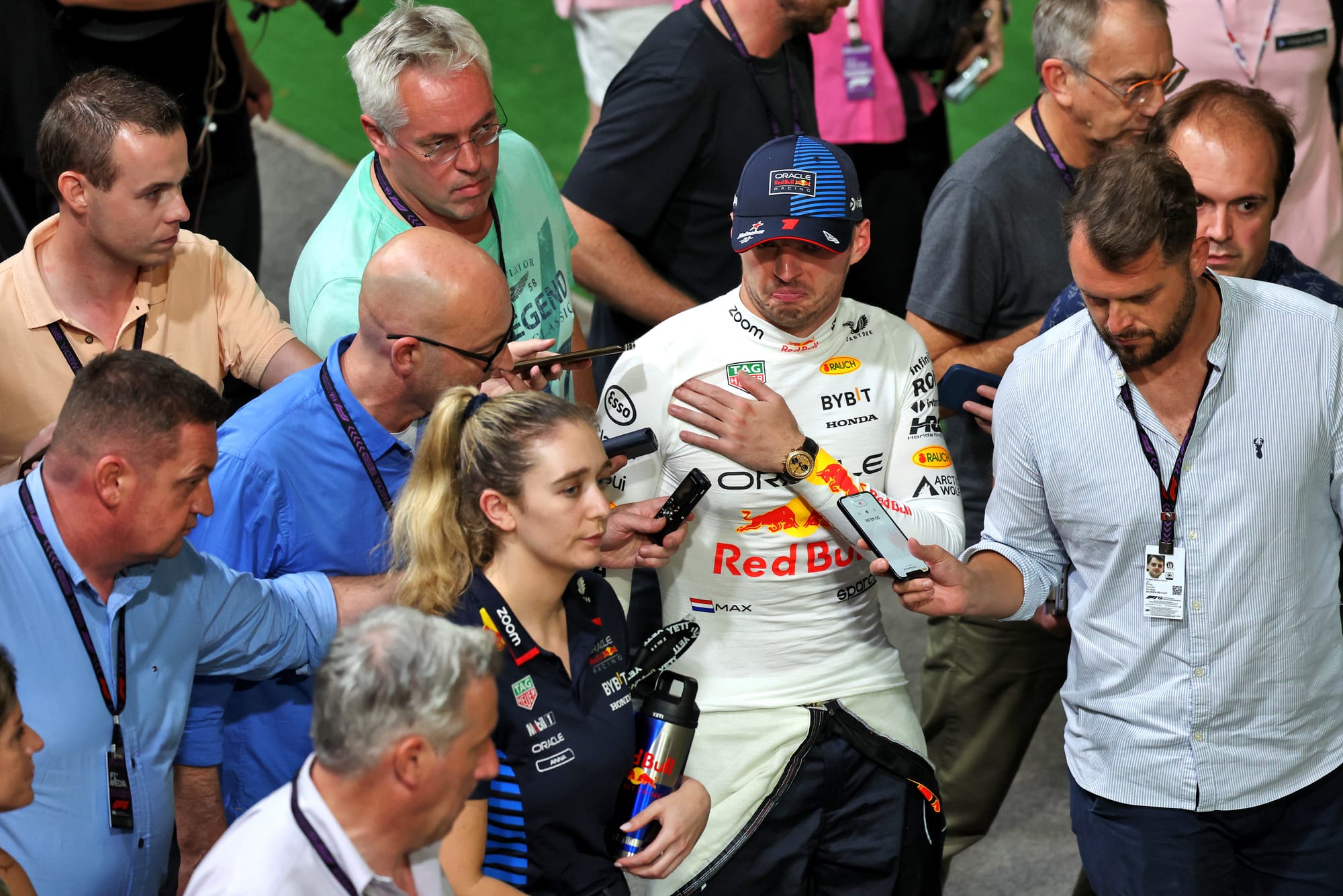
"If you want to keep language clean in the FIA press conferences, that's not remotely unreasonable. Everybody knows you have to moderate your language depending on your platform, and what you're doing. Verstappen understands that. It’s not what it's about.
"In taking this action - in going so heavy-handed, so aggressive, making it so high profile - Ben Sulayem has made himself and the FIA look rather petty on this one.
"That is losing because it just makes the FIA look stupid when they're doing something which isn't unreasonable. [It's an] own goal."
Mitchell-Malm agreed that you have to "applaud" Verstappen for the way he "made it very clear where his metaphorical middle finger was pointed at".
What's the point of the clampdown?
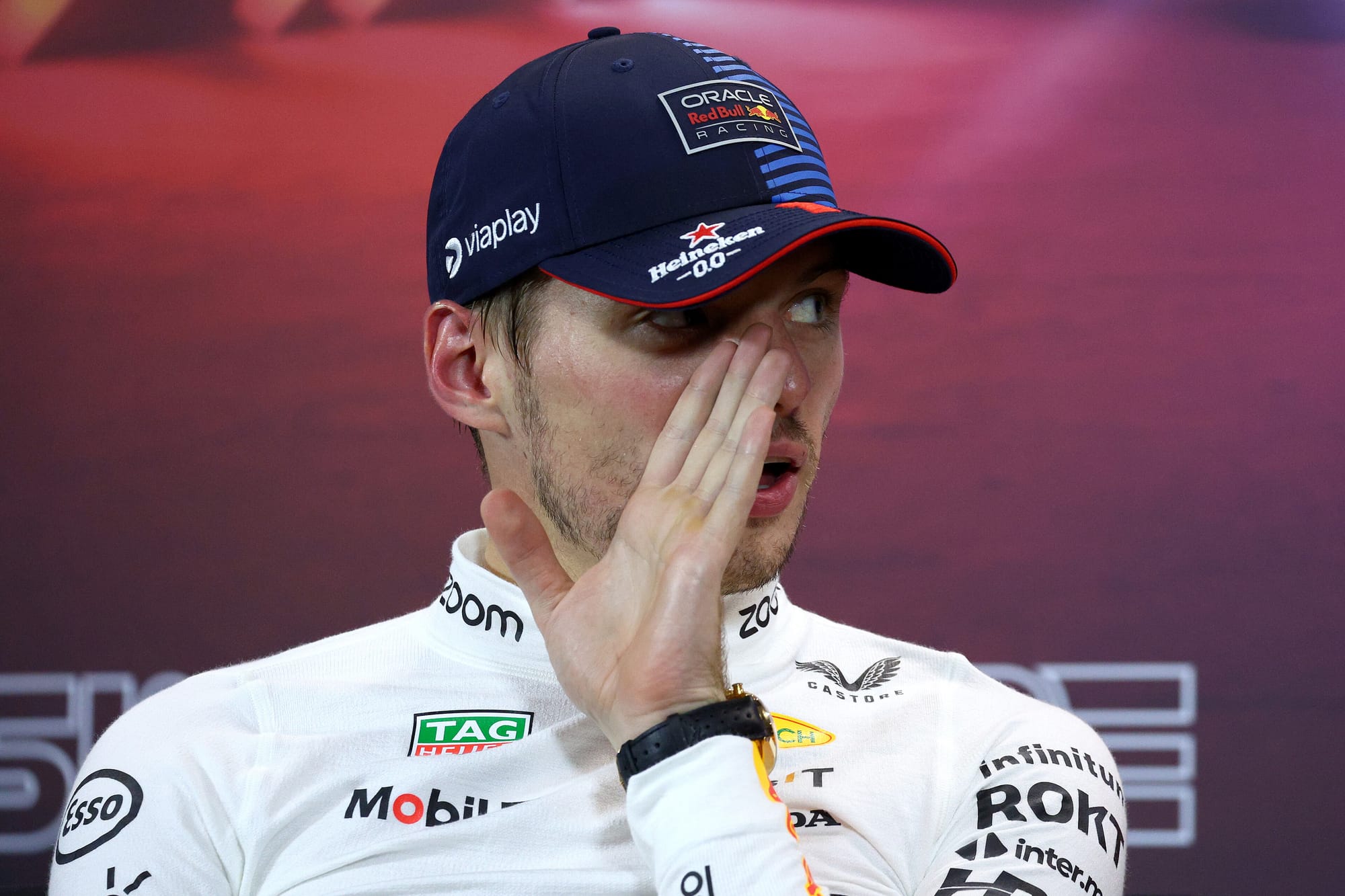
This whole debate was sparked by an interview Ben Sulayem conducted with Autosport prior to the weekend, in which he suggested he was pushing Formula One Management (F1's commercial arm) to limit how much swearing it broadcasts.
This mostly references how much is broadcast rather than policing what the drivers themselves are saying in the car. But there was a call for collective responsibility to be taken over it, including from the drivers.
"It's completely absurd frankly," Straw said of a clampdown on swearing over team radio.
"They're athletes, they're competing, the heart rates are 150bpm, 160bpm, 170bpm, if something goes wrong and they're annoyed, they're going to say things in the heat of the moment.
"As long as it doesn't overstep the mark and go into something that is genuinely offensive. Yuki Tsunoda quite rightly bore the brunt when he used ableist language [in Austria earlier this year, for which he was fined €40,000].
"But if you feel someone has had you off or driven into you, you're going to say things. It's absurd to try to police that.
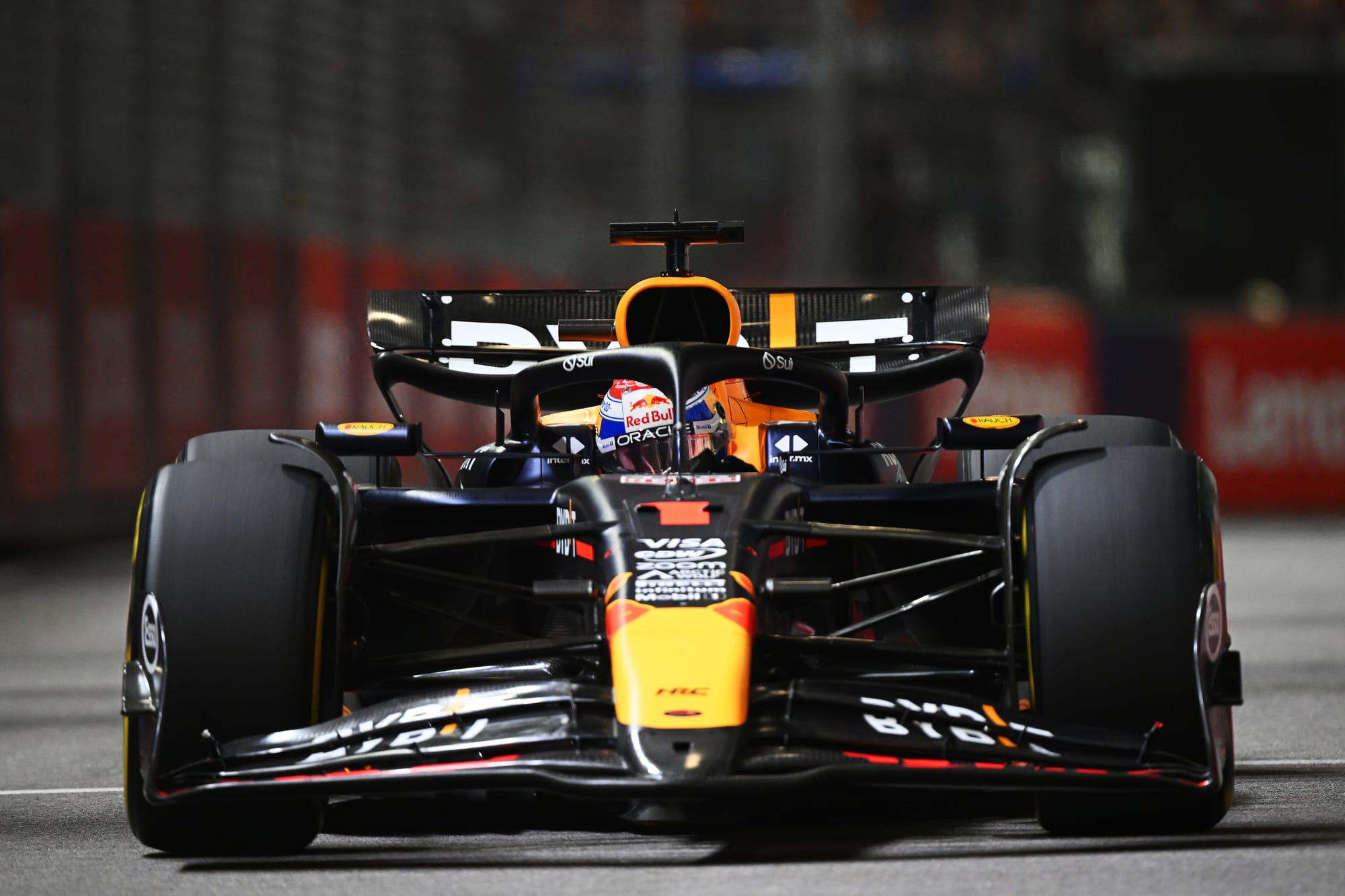
"Fine if you want to try to persuade F1 to not broadcast it, that's a different thing. But to target the drivers in this is ridiculous. All the drivers think that.
"I'd be interested to know what Ben Sulayem, a driver with great success in rallying, thought when he put an F1 car into the wall when he did a famous demo which you can find on YouTube. I wonder what words were in his mind there?"
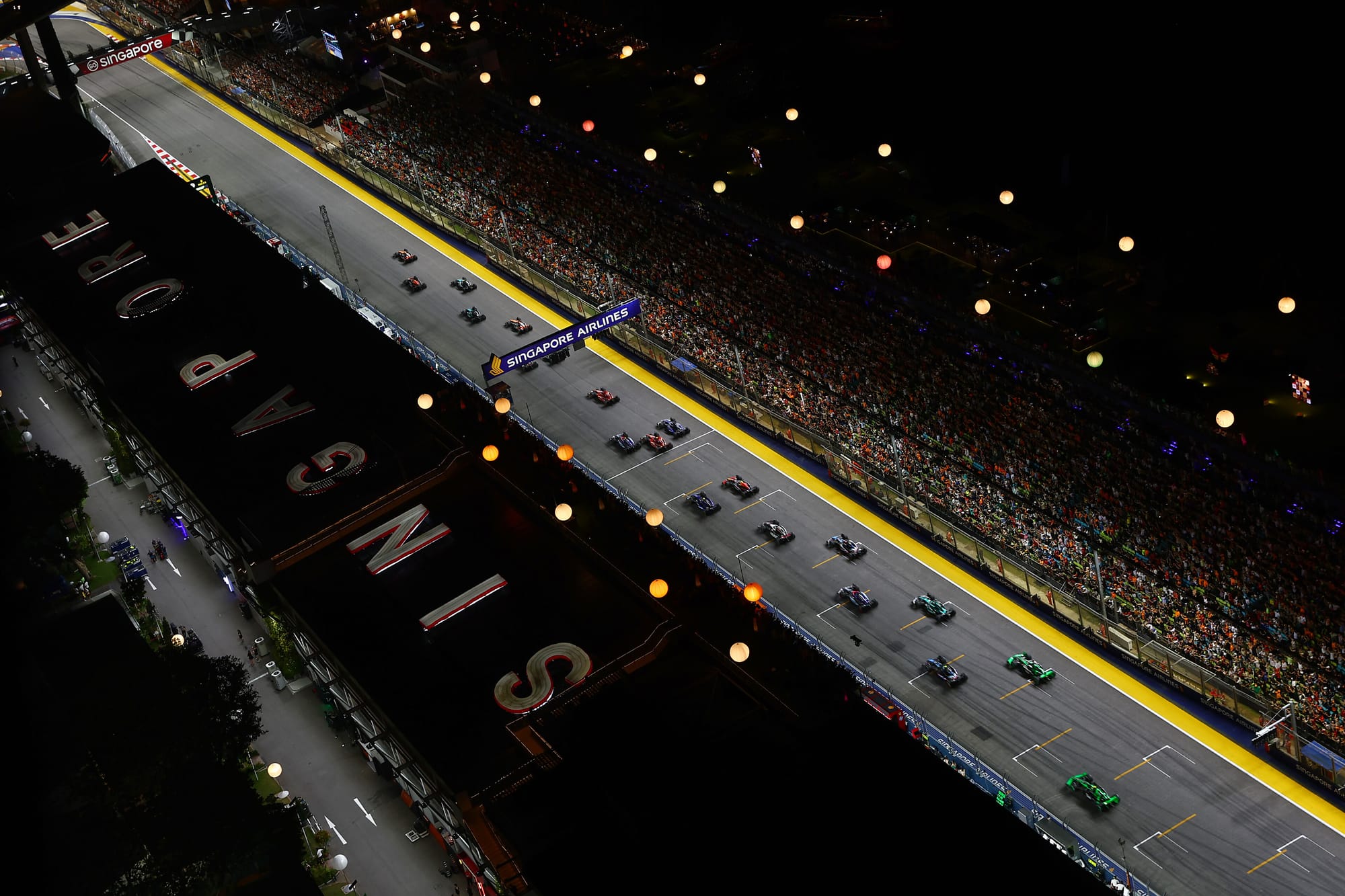
Freeman agreed it is "impossible to get people to not use that language in the heat of the moment" and pointed out the FIA is essentially battling with FOM as a result too.
"That's also picking a fight he [Ben Sulayem] can't win because F1 aren't going to stop using these brilliantly lairy radio messages with the [swear] words bleeped out for the main broadcast," he said.
"It's good content, it's not going away. MotoGP are about to bring in trying to use radios which seems pointless in bike racing but the feeling is the reason it's going to be used is because it makes great social media clips afterwards. It's great to add to the broadcast."
Team radios have offered a window into what the drivers are thinking that previously wasn't available.
"Interestingly in the early days of F1 [broadcasting radio], teams and drivers would often deliberately swear so it wouldn’t get used on the broadcast," Freeman explained.
"Then F1 eventually worked out if we just use a bleep machine then we can use all of this juicy stuff that they're trying to cover up."
Will it change Verstappen's F1 future?
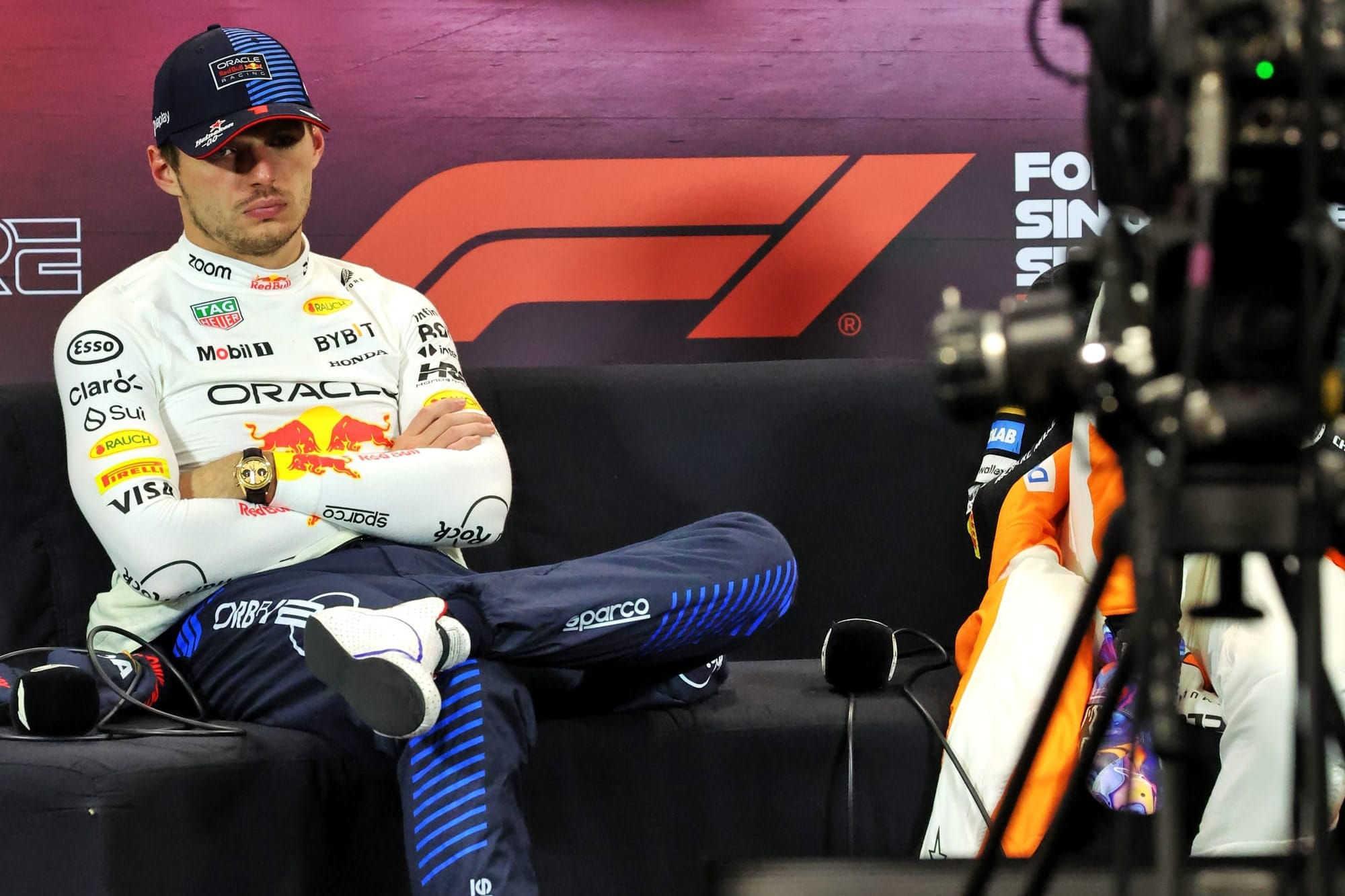
On Sunday in Singapore, Verstappen said that irritating inconveniences such as the swearing clampdown "definitely decide my future" as well as everything that has already had Verstappen publicly questioning his long-term plans for the last few seasons.
"I understand why it sounds a bit petty when Verstappen is seen to have said he might leave F1 over this swearing row. It looks and sounds like a child being told off for bad language and now he's having a sulk," said Mitchell-Malm.
"But that's not what has happened here. Max was asked a leading question about how this feeds into his desire to leave F1.
"He just answered it honestly, he wasn't going out of his way to say, 'All right, that's it, I'll leave then, I'll take my ball and go home'. It's not like that.
"What he's saying is this feeds into wider frustrations where he ends up thinking: actually, is this worth it?
"Because he's made a lot of money, won three world championships, could win a fourth this year. He's achieved everything and more that he set out to. We know he wants to go and do stuff outside of F1 at some point.
"All of this feeds into stuff like frustration with the expanded calendar, too many street tracks, the over-exertion of drivers with silly PR and media activities that he doesn't agree with.
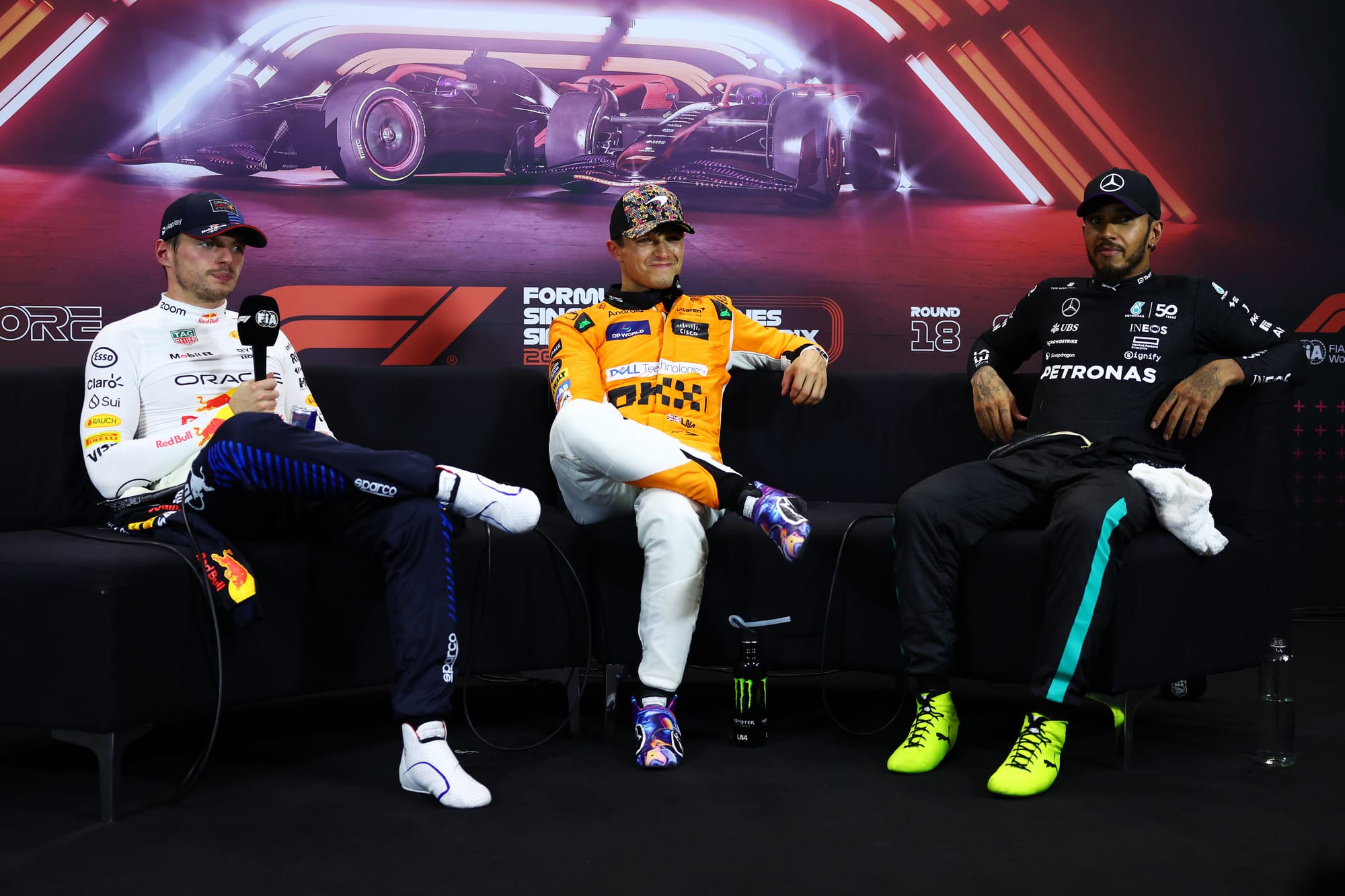
"If you're going to clampdown even further and do some - admittedly very low-level - censorship on what the drivers can say and when, then Max is just justifying: do I want to be part of this in the long-term?
"And I sincerely believe the answer to that will be no. I don't think he's going to quit in the next couple of years over this but it will feed into a process that ultimately makes him go: this isn't worth it anymore."
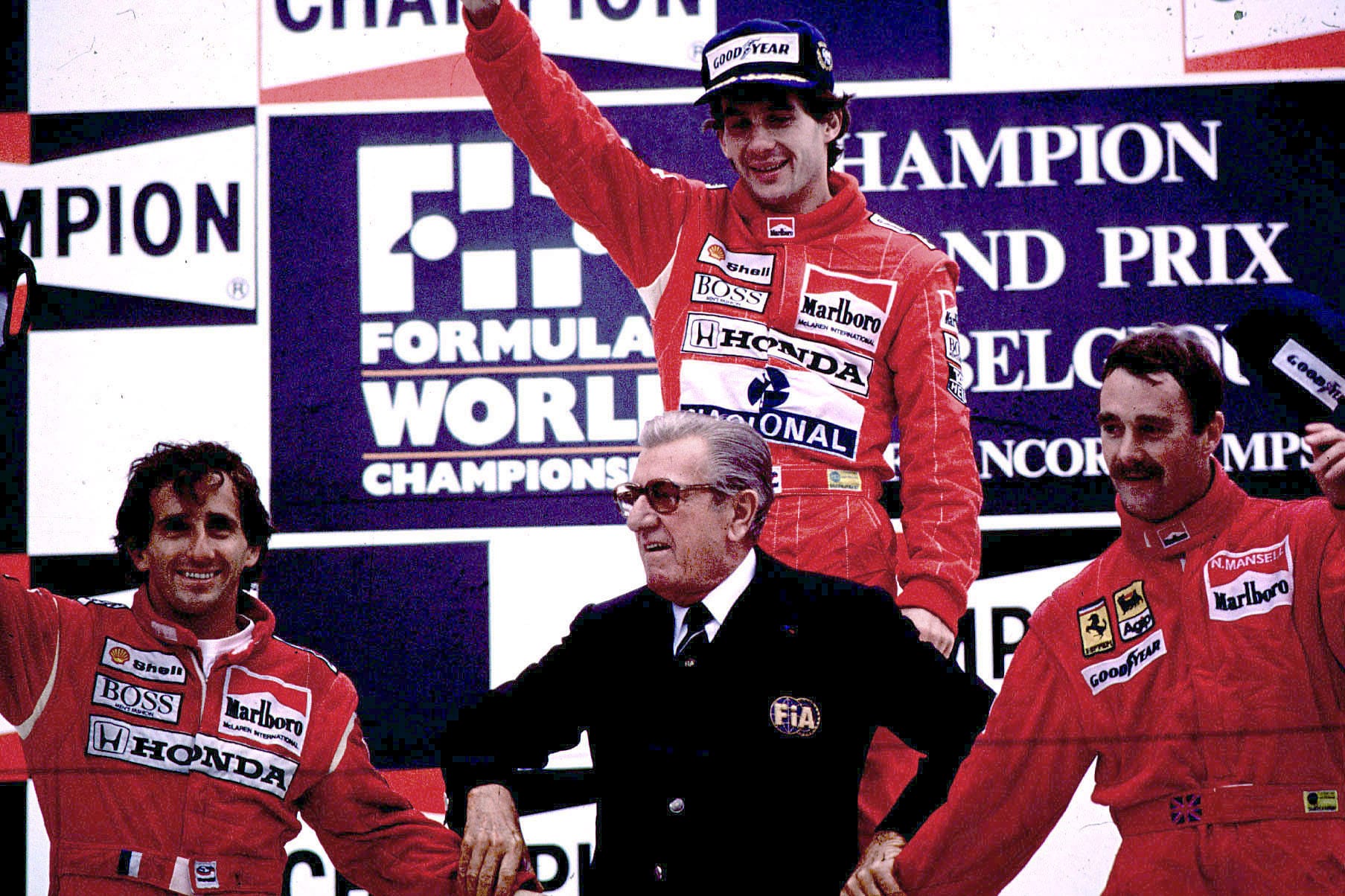
Straw drew comparisons to Ayrton Senna's various standoffs with the governing body such as when Senna intimated that FISA president Jean-Marie Balestre had clearly favoured Alain Prost in the controversial 1989 title decider, which even put Senna's participation in doubt for 1990.
"Verstappen has a huge amount of power in this because if one of F1's all-time greats is willing to walk away for myriad reasons, of which the behaviour over the swearing is one of them, then that reflects very badly on F1," Straw said.
"The FIA and Ben Sulayem may have the regulatory power but Max Verstappen has the real power. Ayrton Senna used to wield that very well, he made the governing body look quite stupid and petty at times as well with how he stood up to them.
"He's not the only driver to have done that. And that's the power that Max Verstappen has got.
"That's why it's so odd that they've gone so aggressive with this one [the FIA]. Dealing with it this way is completely bizarre and it's made it so easy for Verstappen - in what he's saying, what he's doing, what he's not saying and where he's saying it - to show them up for what they're doing and that it's such an absurd situation.
"It reflects badly on F1 and the FIA and that's why this can't keep happening because there's only going to be one winner in this, and it's not going to be the FIA."


